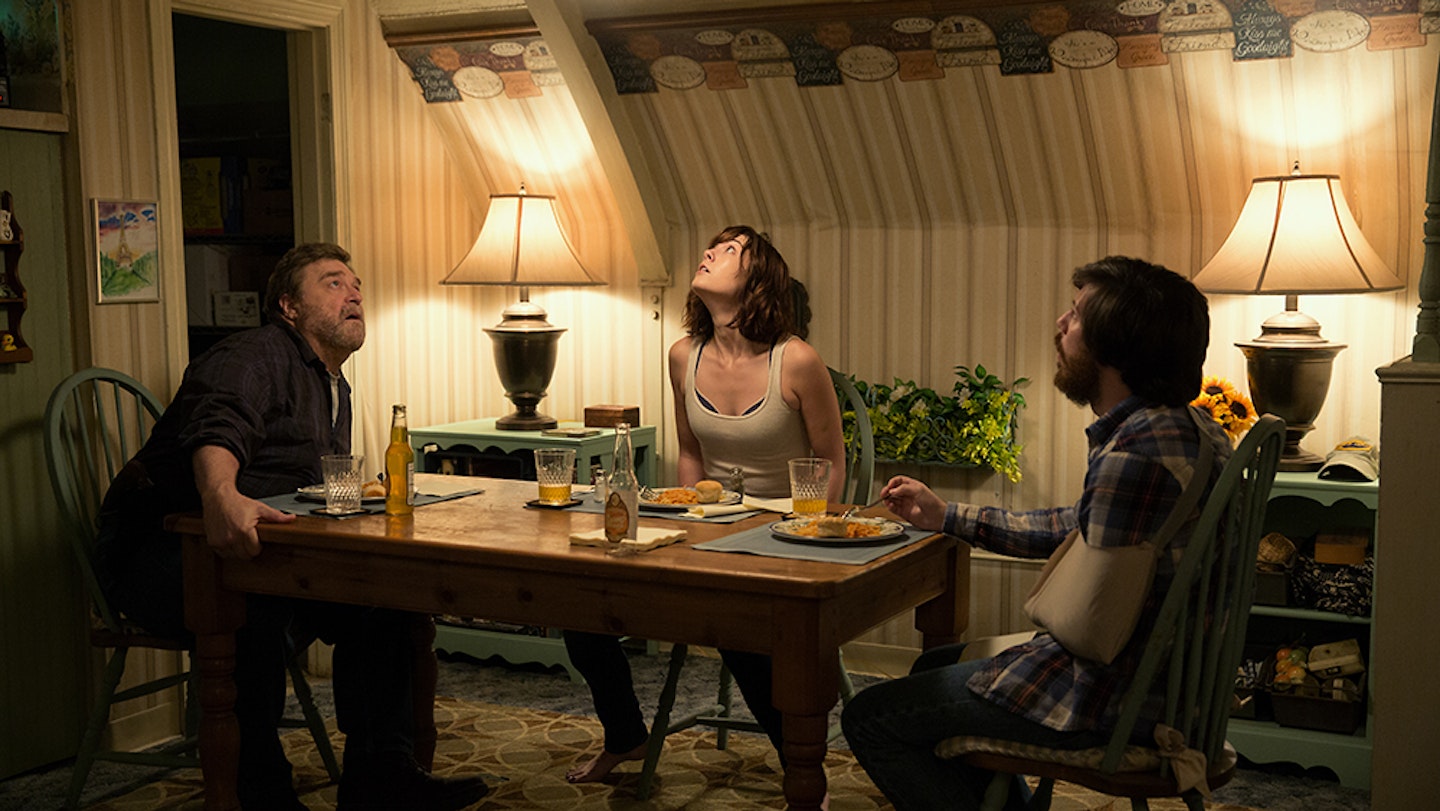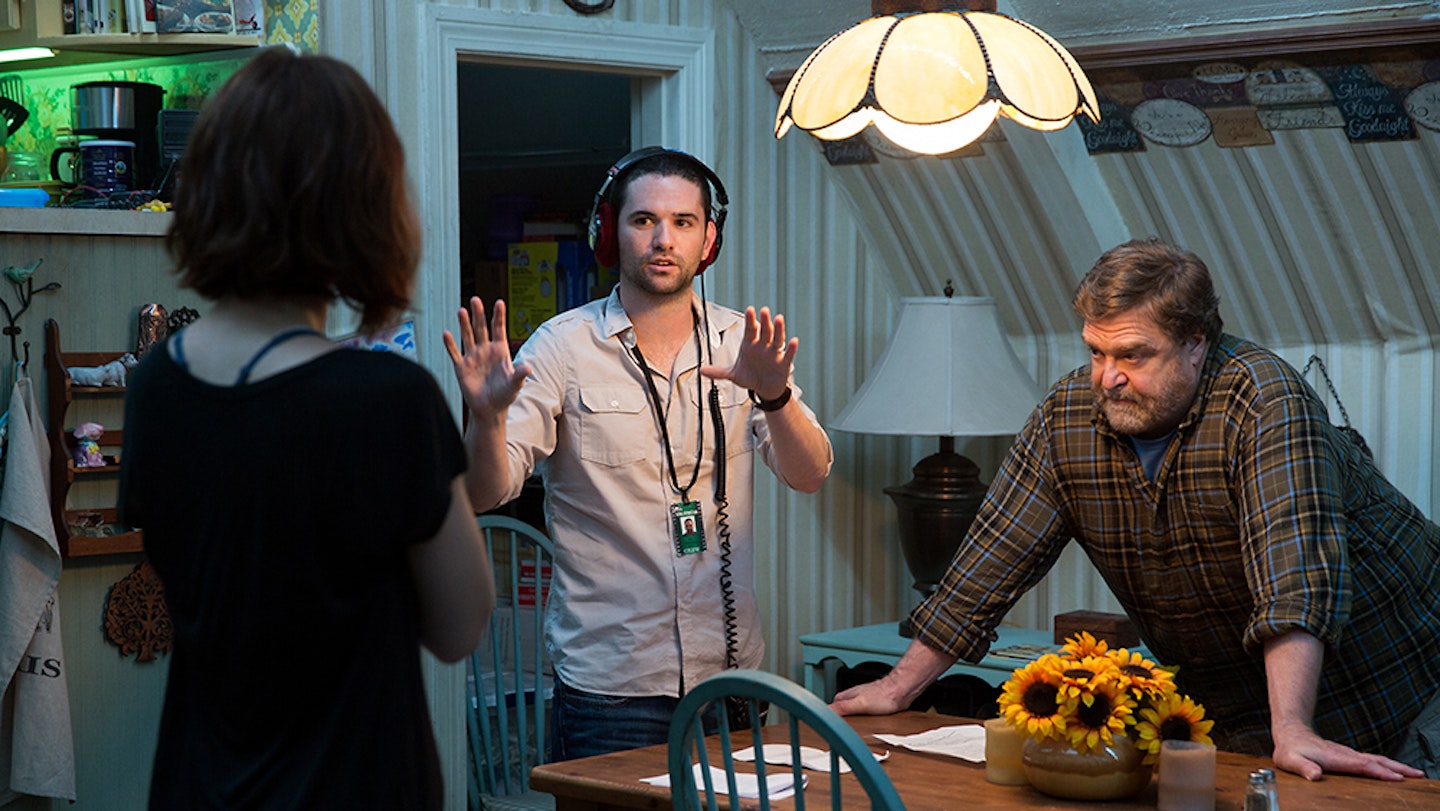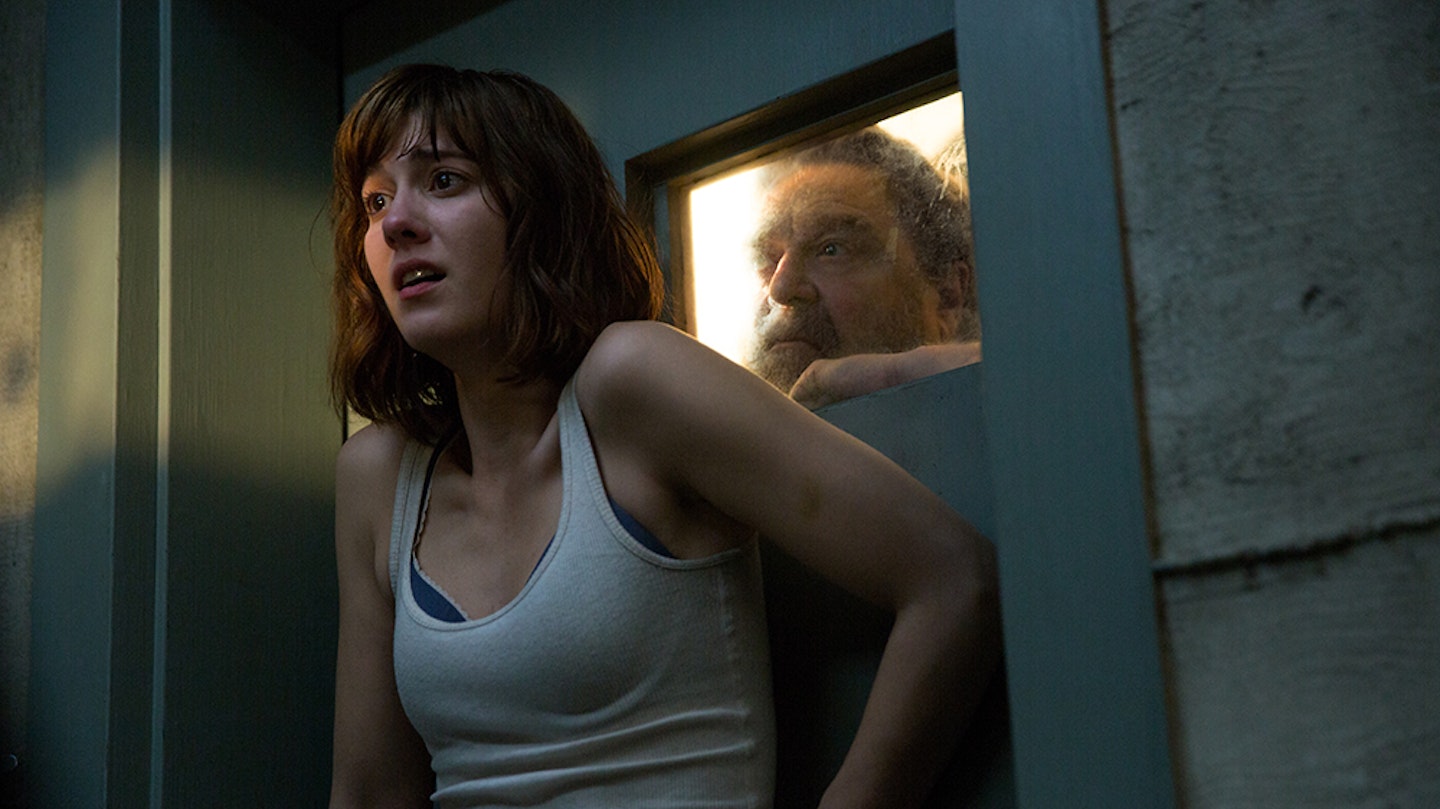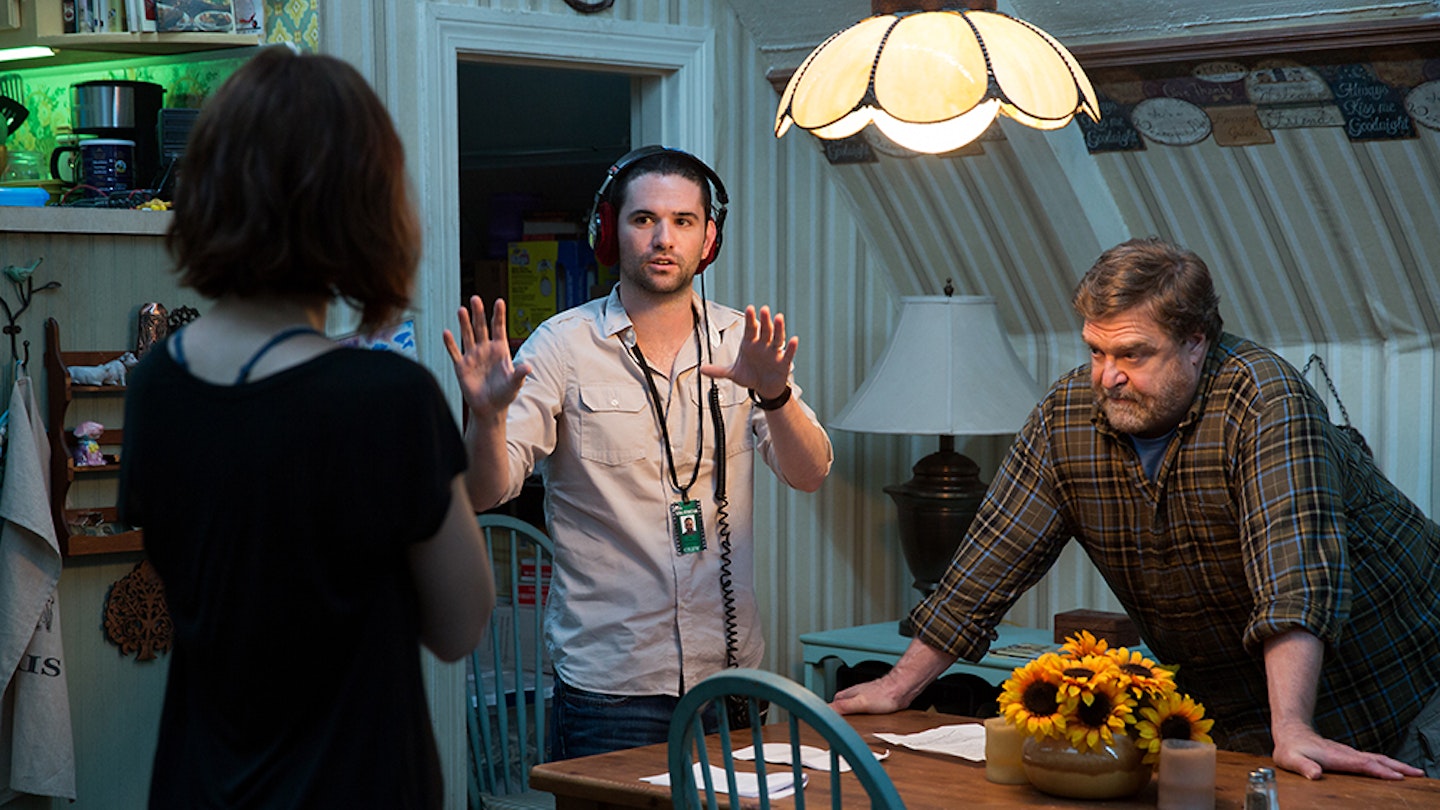Imagine the scenario: you direct a live action short film inspired by video game Portal and release it on YouTube in August 2011. Four and a half years later, you’re directing a film under the Bad Robot banner starring John Goodman and receiving emails from J.J. Abrams whilst he’s rather busy directing a little film called The Force Awakens. If your name’s Dan Trachtenberg and you hail from Pennsylvania, well, your luck is well and truly in.
We sat down with the director to talk about the secrets of his feature length debut, being a part of the Bad Robot machine, not being allowed to watch Rambo III, and much, much more.
When did your involvement with the project start?
I met with Bad Robot about several different projects and then this script came up looking for a director. They sent it over to me and [I] pitched them my take on the material and we were off to the races! I wanted to bring a little bit more humour to it. It was very intense but I thought even those intense moments would be that much more riveting if we were bonded to the characters by laughing with them, having some fun, and then honing in on some of the action sequences.
How exactly is this a “blood relative” to Cloverfield?
Cloverfield was a familiar genre that was told in a very unique way. Similarly, we are a familiar genre that’s also told in a unique way. It’s not the same way: the first Cloverfield had that awesome hook of being told in this found-footage experience. We have something else going for us that makes it unique. I think our structure’s very interesting and there’s things in it that you have to experience.
It’s a mystery/suspense thriller. If we were in the time of Alfred Hitchcock, he would be calling this ‘a suspense picture’. It very much harkens back to that kind of movie. (The Walking Dead composer) Bear McCreary is doing the score. He’s bringing a lot of soul and a lot of that tension to the movie. I think it’s got that Hitchcockian Bernard Hermann-y vibe to it that’s so rad. I’m like, “Open the movie with it!”
If we were in the time of Alfred Hitchcock, he’d be calling this film a suspense picture.
For me it’s fun, it’s funny, and it’s visceral and exciting and thrilling. It’s all of those things.
Just how aware were you of Valencia being turned into 10 Cloverfield Lane?
They developed the screenplay over time into something that could fit into this Cloververse. So when I came to it, I could see already how it could feel that way. But the title was something that didn’t come to us until we were already making the movie and I think it was so smart. I’m so happy that we landed on it, because to me it sounds like a Twilight Zone episode, and this movie is very much a Twilight Zone episode. It’s also a signal to the audience that it's doing something similar to Cloverfield.
Matt Reeves has gone on to very exciting things post-Cloverfield. Do you know what path you’d ideally like your career to take after this?
Matt Reeves’ first movie, The Pallbearer, is one of my favourites movies of all time. [10 Cloverfield Lane] represents the kind of thing I hope I can continue to do, which is something that’s a genre, but it’s elevated genre. Hopefully it’s very interesting and compelling, [and] you’re moved by it emotionally, but also physically. I hope that you’re moved to the edge of your seat and your palms are sweaty and all those things. [That’s] my favourite kind of movie experience and one that I hope to continue to make.

How involved was J.J. Abrams whilst working in a galaxy far, far away?
He was shooting Star Wars when we were shooting this movie, so he couldn’t be there on set but he still somehow managed to find the time to watch all our dailies and shoot me emails. I’d wake up in the morning to an email from him saying, “Love the inserts you’re getting!”, and, “Hey, what do you think about shooting this or that?”. Like crazy, smart and very encouraging. The greatest thing is to wake up to an email from him when I knew he was on the Millennium Falcon and looking at our movie and really proud of what we were doing. [That] was very emotional and exciting for me. He really put wind in our sails.
The greatest thing was to wake up to an email from J.J. when I knew he’d been looking at our movie on the Millennium Falcon.
What was it like to secure your central trio?
I was very excited to hone in on John Goodman. Casting John first really set the tone. He’s very good at being terrifying and being hilarious, and I loved the idea of that character not being merely ‘moustache-twirly’. I enjoyed being scared by him.
[J.J. and I] were huge fans of Short Term 12 and we knew we wanted John Gallagher. When very heightened things are happening, having someone like him to ground the movie with humour was really terrific.
I’ve always been a fan of [Mary Elizabeth Winstead’s]. She gets to do some fun action-y stuff she brings this gritty swashbuckle to. I think there’s a lot of movies that have women in peril running away from the scarier things and then end up being saved by a man, so it’s great to see this character MacGyver her way out of situations, whether physically MacGyvering away, or mentally MacGyvering a way out of something. I relate to her more than I relate to most leading men in movies.

How much did filming chronologically work to your advantage?
Not only was it filmed chronologically, but we also built the set as one set. You could walk from one end to the other. I let the actors see the set before we did our rehearsals on the stage. I’ll never forget John Gallagher walking through and being like, “Wow, wow, wow, wow, wow!”
I talked with our amazing production designer Ramsey Avery about the set being a character; it’s not your typical grey-walled bunker, it’s really a home that this guy (John Goodman’s Howard) made, and every detail would speak to the kind of guy that would make this thing. It’s a combination of submarine, spaceship and living room. I looked at The Hunt For Red October, Crimson Tide and even J.J.’s Star Trek, which are claustrophobic when they want to be but also big and exciting movies. So I took them as a guide, from the camerawork to the production design, to see how we could apply them.
It was important to shoot chronologically and we could do it because we had one set. It would have been harder if we’d had to build one set and then tear it down, and then build another. Because there’s so many twists and turns and because your allegiances keep changing, I thought it would be a little bit overwhelming [for the actors] to have to flip-flop between, “Okay, now we trust this guy, now we trust this thing.” So we were able to tell one fluid emotional story and not have to keep track of, “Wait, what am I thinking right now about that guy?” I feel like any movie would want to be shot that way if they’re able to.
I looked at The Hunt For Red October and even J.J.’s Star Trek: claustrophobic movies when they want to be, but also big and exciting.
Do you avoid fan theories or are you easily sucked in?
I allow myself to get firmly sucked in. I love that! I come from that. If I hadn’t worked on this movie I would be reading every forum just the same. I’m reading all of it. I’ve definitely seen things that have made me laugh. And there’s some things that are really smart and like, “Oh man, we should have done that, that’s really cool!” And there’s some things that are like, “Oh, do they know something? I don’t know!” So there’s the whole variety of things that are in those theories. But they’re cool.

How does it feel to now be a part of Bad Robot’s secret machine?
I love that part of it. I love that. It just reminds me of being a kid and not knowing much about a movie. I would read Entertainment Weekly here and there, but in general you would find out about a movie from its trailer, you know, “What is that movie?" And so much of the reason why I’m making movies comes from my parents not allowing me to see a lot of movies before I was ready. I wasn’t allowed to see R-rated movies for a very long time. But my mom would bring a book to Blockbuster Video with her to allow me to walk through and just pick up every cover. I remember Alien, looking at the egg on the front and turning it over and seeing one little square image and reading the blurb and being like, “What is this movie?”
One of the first cassette tapes I ever purchased was the Rambo III score. I was not allowed to see Rambo, but my mom would allow me to buy the music, so I would listen to that score over and over and imagine the movie. But those limitations and not being able to access those things made me so much more excited about them.
Can you imagine an alternate reality where your Portal short didn't exist and hadn’t led you to this?
(Laughs) Please don’t make me imagine that! I spent a long time trying to make it in the commercial world hoping that commercials would then lead to movies. That was a less-travelled path at the time, although it’s very well-travelled now. I grew up loving Ridley Scott and Tony Scott and Michael Bay and Adrian Lyne. A lot of the commercials that I was doing were very slice-of-life, emotional, documentary-style, not big and cinematic and ultimately like the kind of movie I wanted to make. So I decided to do the short film that’s based on the Portal game to do something that represented what I’d want to do as a movie. And thankfully that really struck a nerve and caught the zeitgeist and allowed for this to happen.
10 Cloverfield Lane is released in UK cinemas on March 18. It hits the US on March 11.
Read our interview with J.J. Abrams here.
Read our interview with Mary Elizabeth Winstead here.
Read our interview with John Gallagher Jr. here.
